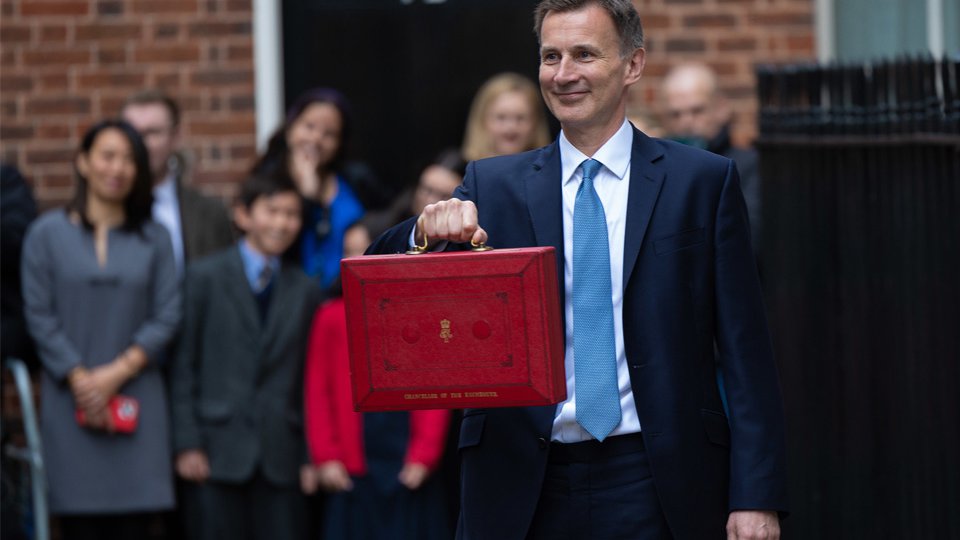Blog: The Spring Budget 2023 and The Maritime Sector

On 15 March, the Chancellor of
the Exchequer announced to the House of Commons a series of fiscal measures as
part of the Spring Budget 2023. Jeremy Hunt delivered his budget statement
against a slightly less pessimistic economic picture, compared to the Autumn
Statement in November 2022.
Key measures from a Maritime UK perspective included:
- Plans to encourage shipping companies to opt into the UK’s Tonnage Tax regime.
- Up to 12 investment zones to support innovation in regional clusters.
- Making £1 billion of funding available in the third round of the Levelling Up Fund.
- Devoting an extra £400 million of funding for Levelling Up Partnerships.
Tonnage Tax
The Budget explicitly acknowledges the importance of the UK’s maritime sector and outlines plans, from June 2023, to “open an election window to permit shipping companies that left the Tonnage Tax regime to return to the UK, bringing with them investment and jobs”. This crucial measure for the maritime sector follows reforms to the Tonnage Tax regimes, which were first announced in the Autumn Budget 2021 to attract more businesses to settle their operational headquarters in the UK in the aftermath of Brexit.
The Chancellor also unveiled a temporary 3-year full capital expensing scheme for machinery and technology spending by businesses to replace the super deduction, as he confirmed that the corporation tax rate will increase from 19% to 25% in April 2023. Furthermore, the fuel duty escalator was frozen for a thirteenth consecutive year, while alcohol duty is set to increase in line with inflation. However, duty on draught prices will be 11p lower in what Hunt dubbed the ‘Brexit Pub Guarantee’.
Investment Zones and Regional Growth
The Chancellor announced 12 investment zones, aiming to support innovation across high-potential knowledge-intensive growth clusters across the UK – including one in each of the devolved nations. Each investment zone will have access to £80 million of support over five years.
The Government confirmed up to £1billion of funding will be made available in the third round of the Levelling Up Fund, with another £400 million Levelling Up Partnerships (e.g., Redcar and Cleveland, Tyneside) and £200 million for local projects.
In addition, £8.8 billion will be set aside for sustainable transport schemes and local authorities look set to take over strategic investment powers from local enterprise partnerships in 2024.
Economic Outlook
According to the Office for Budget Responsibility (OBR), the UK economy will likely avoid a technical recession, contracting by 0.2% in 2023 before returning to growth of 1.8% in 2024, 2.5% in 2025, 2.1% in 2026, and 1.9% in 2027.
Inflation is set to fall to 2.9% in 2023 from a record high of 10.7% at the end of 2022. At the same time, unemployment will rise to 4.4%. National debt will reach 92.4% of GDP in 2023/24, 93.7% in 2024/25, 94.6% in 2025/26, and 94.8% in 2026/27, whilst the deficit is expected to go from 4.5% of GDP to 0.0% over the same period. The limit on government department budget increases remains fixed at 1% for 2023/24.
Energy, Employment and Education
The Government will make £20 billion of support available to early developers of Carbon Capture Usage and Storage (CCUS), which has the potential to add 50,000 high-skill new jobs to the economy and cut up to 30 million tons of C02. Hunt also announced that nuclear power will be classed as environmentally sustainable to enable the industry to access the same investment incentives as other energy sources, with a view to nuclear underpinning a quarter of total UK energy supply in the long term.
Another key part of the budget focused on removing barriers to work and tackle the UK’s productivity conundrum. To achieve that, the Chancellor announced to allow people with disabilities and long-term health issue to seek work without losing access to the benefits system, as well as unveiling ‘returnerships’ for over 50s wishing to re-enter the workplace. In an unexpected move, the Chancellor also abolished the lifetime pensions allowance and increased the tax-free yearly allowance for pension pots from £40,000 to £60,000.
Hunt announced an expansion of free weekly childcare provision, with 30 hours of childcare extended to all children over 9 months of age with a staged introduction beginning in April 2023 – when 15 hours for 2-year-olds will be offered. The Government aims to make this provision available to all children over 9 months from September 2025, having set aside £288 million of funding to early years providers from next year to enact these reforms.
Conclusion
Overall, it is good to see the Government providing more detail about ‘investment zones’ which have the potential to make policy progress towards some of the recommendations outlined in Maritime UK’s Coastal Powerhouse Manifesto while – crucially – moving to implement reforms to the Tonnage Tax regime and enabling businesses to fully expense their machinery and technology expenditure, something which will help making the UK an attractive destination of choice for maritime and shipping enterprise across the world.
Maritime UK is eager to understand, however, how the Government plans to ensure that coastal communities and maritime businesses benefit from the 12 investment zones mentioned by the Chancellor of the Exchequer, as well as whether there are any plans to establish additional investment zones in other parts of the country.

